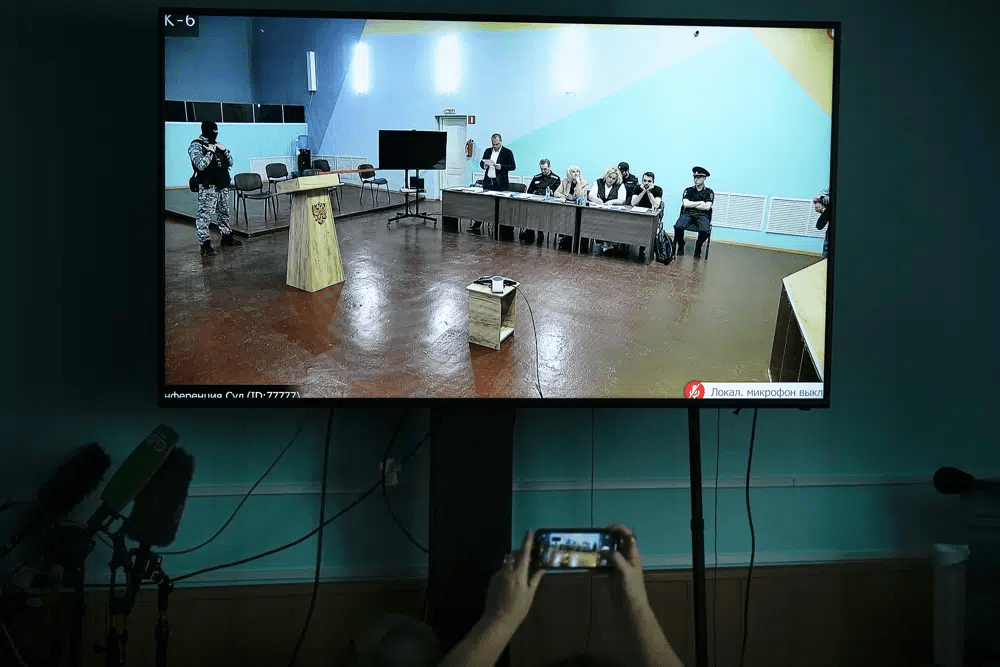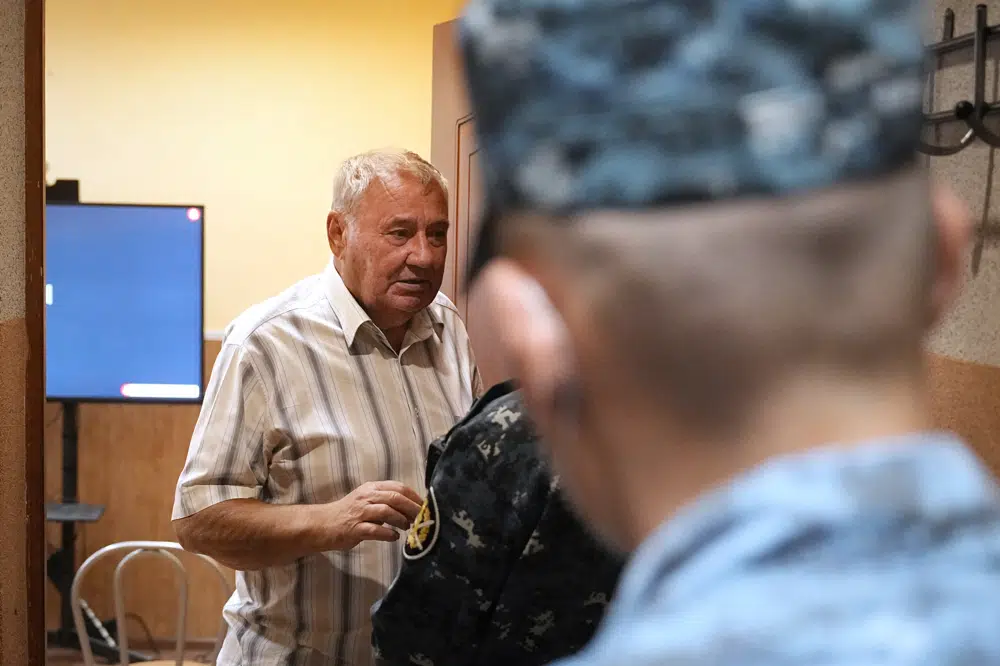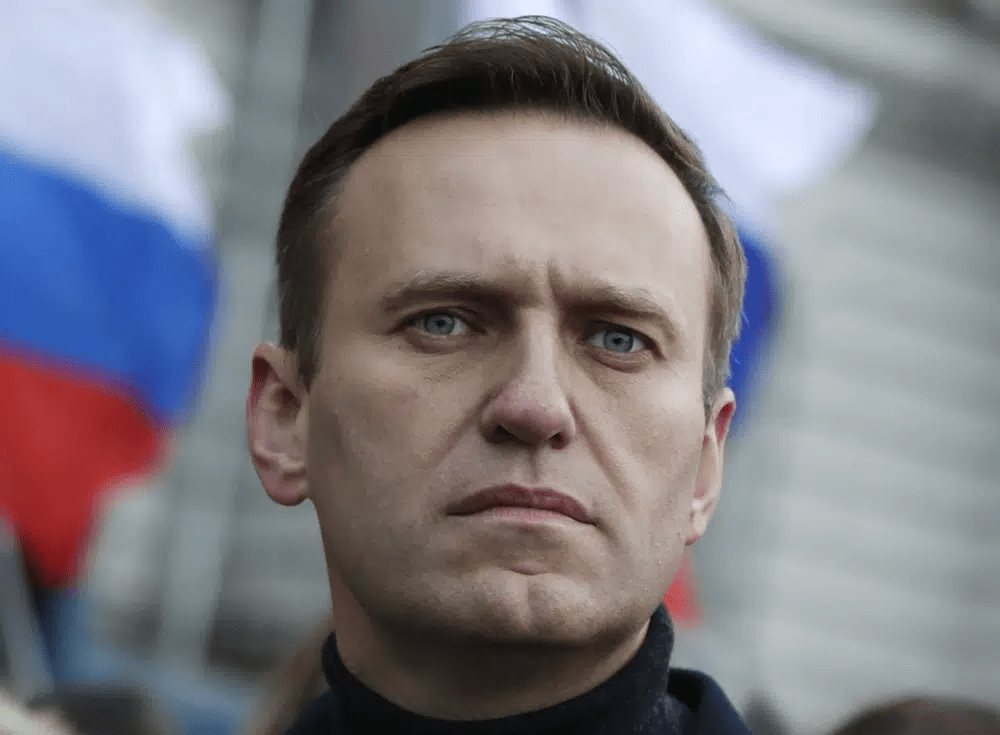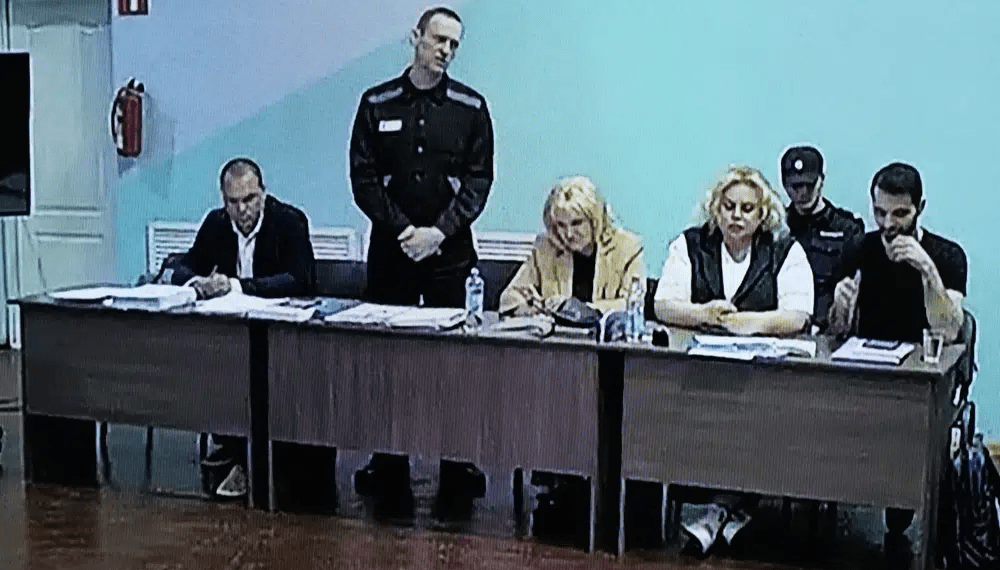Jailed Russian Opposition leader, Alexei Navalny appeared in court on Monday, June 19, 2023, as he went on trial on new charges of extremism.
The trial began inside a maximum security penal colony in Melekhovo, 250 kilometers (150 miles) east of Moscow, where Navalny, 47, is serving a nine-year sentence for fraud and contempt of court; charges he says are politically motivated.
Soon after it started, the judge closed the trial despite Navalny’s demand to keep it open.
The Moscow City Court, which opened the hearing at Penal Colony No. 6, did not permit reporters to enter the courtroom and they had to watch the proceedings via video feed from a separate building. Navalny’s parents were also denied access to the court and followed the hearing remotely.

Navalny and his attorneys urged the judge to hold an open trial, arguing that authorities are eager to suppress details of the proceedings to cover up the weakness of the case.
Prosecutor Nadezhda Tikhonova asked the judge to conduct the trial behind closed doors, citing security concerns. The judge agreed and reporters were asked to leave the premises.
Commenting on the court’s decision to close the trial, Navalny’s father, Anatoly, remarked that it showed “the utter lack of shame, conscience and dignity.”

In a statement posted on social media by his allies, Navalny declared that the decision to close the trial was a sign of fear by President Vladimir Putin, and he announced the start of a campaign against Moscow’s decision to send troops to Ukraine.
Navalny said the effort must reach out to millions to explain the disastrous impact of the fighting and “combat Putin’s lies and the Kremlin’s hypocrisy.” He argued that despite a relentless crackdown on dissent, such a campaign could be efficiently conducted on messaging apps outside the authorities’ control.
“No one but us could enter this fight for our citizens’ hearts and minds, so we need to do it and win,” Navalny said.
Navalny has said the new extremism charges, which he rejected as “absurd,” could keep him in prison for another 30 years.
The new charges relate to the activities of Navalny’s anti-corruption foundation and statements by his top associates. His allies said that the charges retroactively criminalize all the activities of Navalny’s foundation since its creation in 2011.
Germany Calls For Navalny’s Release

In other developments, the German government denounced the trial of Navalny and reiterated its call for his immediate release.
Government Spokesman, Wolfgang Buechner told reporters, “In case of the opposition politician, Alexei Navalny, the Russian authorities keep looking for new excuses to extend his imprisonment.”
“The German government continues to demand of the Russian authorities that they release Navalny without delay. Navalny’s imprisonment is based on a politically motivated verdict, as the European Court of Human Rights concluded back in 2017.”
Wolfgang Buechner
Asked whether Germany could provide any assistance to Navalny or observe the trial, Foreign Ministry Spokesman, Christian Wagner stated that German officials were doing what they could “on the few channels that we have,” but admitted that it was “very difficult at the moment” given the current state of relations with Russia.
One of Navalny’s associates, Daniel Kholodny, was relocated from a different prison to face trial alongside him.
Navalny, who exposed official corruption and organized major anti-Kremlin protests, was arrested in January 2021 upon returning to Moscow after recuperating in Germany from nerve agent poisoning that he blamed on the Kremlin.
Navalny has spent months in a tiny, one-person cell, also called a “punishment cell,” for supposed disciplinary violations such as an alleged failure to properly button his prison clothes, properly introduce himself to a guard or to wash his face at a specified time.



















